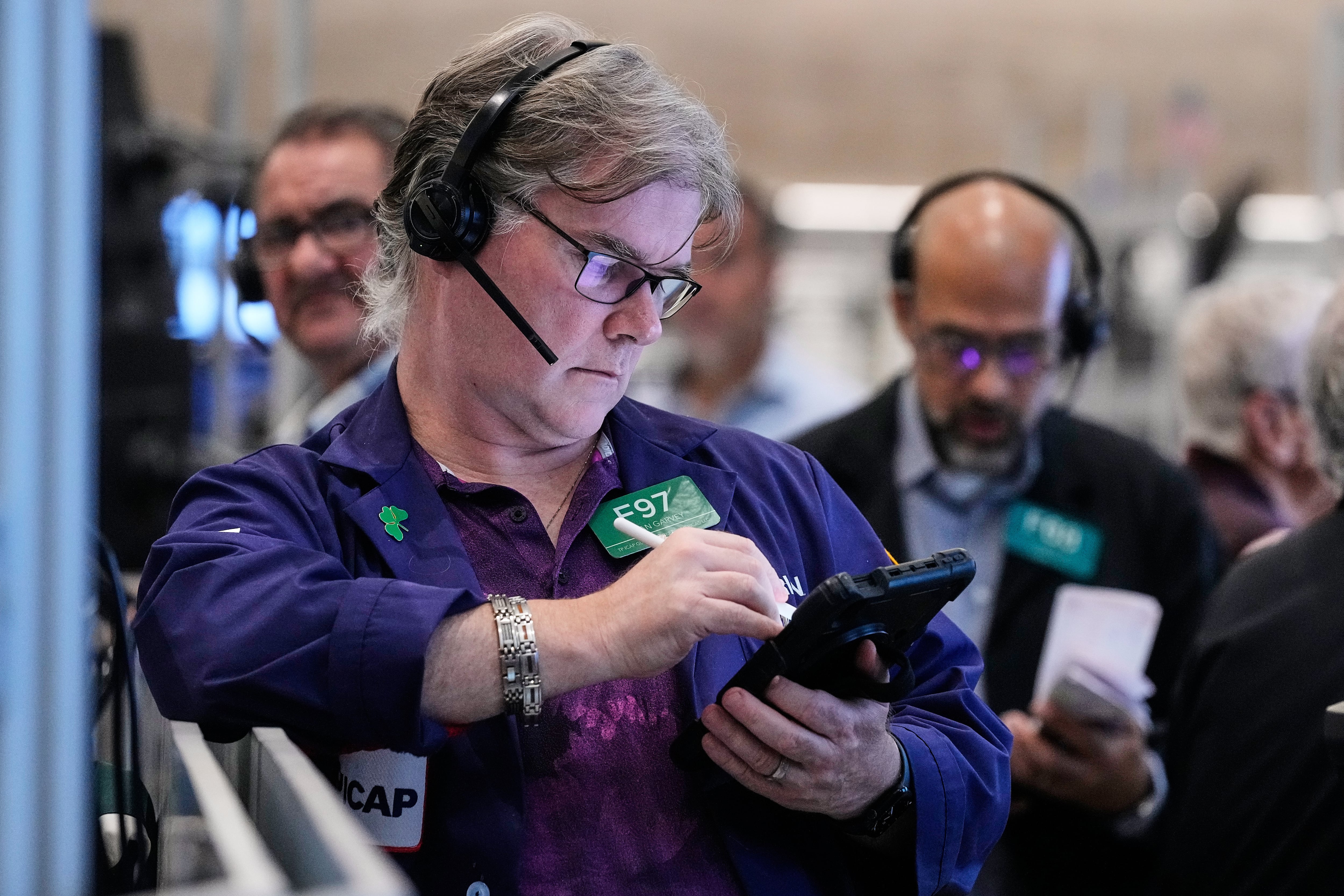GENEVA (AP) — With the normally brisk Easter season around the corner, the mood in Switzerland’s chocolate business is bittersweet, thanks to high cacao prices and — now — the newly added U.S. tariffs on imports.
Many Swiss, from the government to chocolatiers to watchmakers and other businesses, are sensing “shock” over the tougher American position on trade, but many are also taking a wait-and-see stance.
At the Festichoc chocolate festival in Geneva over the weekend, the Trump administration tariffs announced last week were on many minds, though they seemed to do little to sour the mood on Switzerland’s most famous sweets.
Julie Jammes, marketing manager for Canonica, a Geneva chocolatier with three stores in San Francisco, said her company hasn't yet made any decision on what actions might be taken. “We’re waiting a little longer, but it’s clearly a shock for us," Jammes said.
That meshes with Switzerland’s overall approach: Despite hefty 31% U.S. tariffs slapped on Swiss goods -- well more than the 20% faced by exports from European Union – the government in Bern is taking a cautious approach for now. But it has warned of the impact on crucial Swiss industries like watches, coffee capsules, cheese and chocolate.
“An increase in trade tensions is not in Switzerland’s interests. Countermeasures against US tariff increases would entail costs for the Swiss economy, in particular by making imports from the USA more expensive,” the government said last week, adding that the executive branch “is therefore not planning to impose any countermeasures at the present time.”
The government said Swiss exports to the United States on Saturday were subject to an additional 10% tariff, and another another 21% beginning Wednesday.
The United States is Switzerland’s second-biggest trading partner after the EU – a 27-member-country bloc that nearly surrounds the wealthy Alpine country of more than 9 million – and U.S.-Swiss trade in goods and services has quadrupled over the last two decades, the government said.
The Swiss government said Switzerland abolished all industrial tariffs on Jan. 1 last year, meaning that 99% of all goods from the United States can be imported into Switzerland duty-free.
The atmosphere remained bubbly at Festichoc, where eager shoppers nibbled chocolate squares and ogled at chocolate Easter bunny and egg sculptures at the annual gathering in the Geneva town of Versoix.
Jammes, of Canonica, expressed hope that the “loyal clientele” in the United States would remain faithful, but she said “I put myself in the consumer’s shoes” and realized a pocketbook pinch might dissuade many shoppers.
“I don’t see why I would pay $45 tomorrow for a box (of chocolates) that I’d pay $30 for today,” she said Saturday. “It’s still a very complicated issue.”
The Swiss chocolate industry association Chocosuisse has expressed its disappointment over the Trump tariffs, even though it can still count on the domestic market: The Swiss are among the world's top consumers of chocolate, scarfing down more than 10 kilograms (22 pounds) per year.
“It is completely incomprehensible that Switzerland is targeted by these tariffs,” Chocosuisse said, adding that it was taking the situation “very seriously” and decried how the U.S measure “hits our businesses hard and represents a heavy burden that will weigh on exports to the United States.”
Philippe Pascoet, a chocolatier from Geneva, lamented a sharp increase in cocoa prices over the last six months, and said the U.S. market has always been tricky for smaller producers.
“Trump now has wanted to impose taxes on imported products. But it has always been complicated to send chocolate to the United States, just for sanitary reasons," he said. "They want to control what is imported into their country. So even people who used to order chocolate from us online often found it blocked at customs.”
___
Associated Press writer Jamey Keaten contributed to this report.









